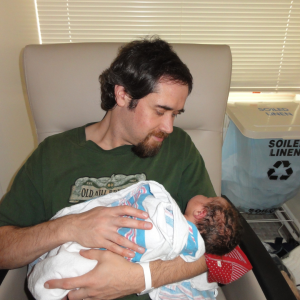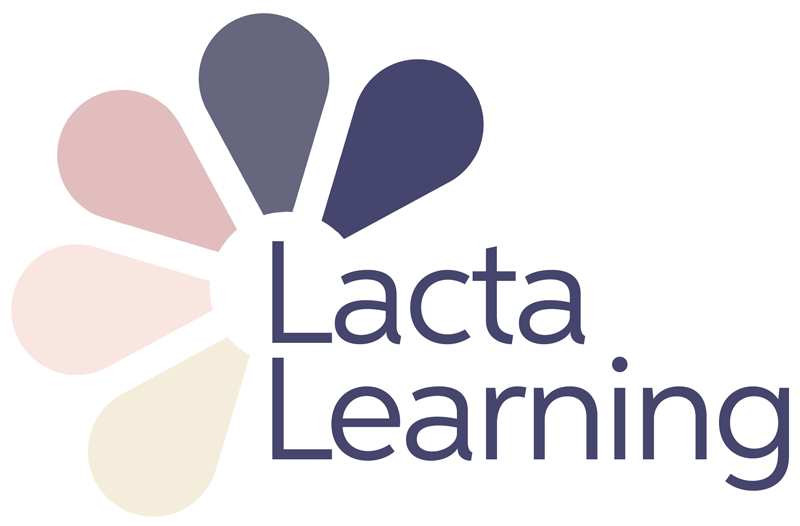From Barbara:
Happy Father’s Day to anyone who identifies as a father!
 With breast/chestfeeding the bulk of the focus is on the birthing parent, typically the mother. But what about Dads? Where do they fit into this picture?
With breast/chestfeeding the bulk of the focus is on the birthing parent, typically the mother. But what about Dads? Where do they fit into this picture?
From research, we know that father support is important to breastfeeding success. In a 2022 study looking at black families, the researchers found, “Participants who breastfed for at least 6 months largely attributed their breastfeeding success to the support received from their partners.” (Dogan et al, 2022). This trend of partner support was seen across all research regardless of geographical area, race, or income level. A 2022 review had the same results. “This review shows that a father’s support of breastfeeding improves breastfeeding outcomes. Including fathers in the breastfeeding process and ensuring their active participation increase breastfeeding rates.” (Koksal et al, 2022)
Be prepared! New fathers may already feel overwhelmed with just having a baby. Adding in the difficulties that can occur when you are breastfeeding can make things even harder. Many fathers found, “found breastfeeding a more difficult experience than anticipated, it was associated with increased anxiety and they felt totally unprepared to be able to support their partner to breastfeed successfully.” (Balwin et al, 2022)
Balwin also found that fathers felt like they weren’t given realistic expectations prenatally. They needed to know that nursing isn’t always easy. I always say to parents that nursing maybe the easiest thing they have ever done (it is designed to work after all!), or the hardest thing they have ever done (our cultural beliefs around breastfeeding, our birth and postpartum experience can really undermine the design). Fathers wanted to know that nursing is often challenging in the beginning and who/where to reach out if there were issues.
Having dads attend prenatal breastfeeding classes was an important piece of providing information and having fathers understand why nursing is so beneficial for the baby, the birthing parent, and our world. (Baldwin et al, 2021) “The father’s knowledge of breastfeeding causes him to want to support it, and his encouragement of breastfeeding enhances the mother’s confidence to start it.” (Agrawal et al, 2022) “Breastfeeding education and promotion for fathers in the antenatal and postnatal periods improved exclusive breastfeeding rates at 6 months, decreased the probability of full formula feeding at 2 months, decreased the occurrence of breastfeeding-related problems, increased the level of support offered by the father in breastfeeding-related issues, and improved the mothers’ knowledge and attitude towards breastfeeding (Mahesh et al, 2018).
 Getting the buy in helped them be committed to the process. “Initiation and breastfeeding at 8 weeks were more likely to be reported by fathers who reported wanting their infant’s mother to breastfeed than those who did not want her to breastfeed or had no opinion…Previous studies have suggested that fathers can play a key role in helping mothers breastfeed. But researchers in this new study were struck by how strong the correlation appeared to be…The difference is “dramatic,” Parker added. Going forward, Parker said he hopes “we can tell fathers how valuable they are in the successful breastfeeding — tell them that this is a team effort.” (Parker et al, 2023)
Getting the buy in helped them be committed to the process. “Initiation and breastfeeding at 8 weeks were more likely to be reported by fathers who reported wanting their infant’s mother to breastfeed than those who did not want her to breastfeed or had no opinion…Previous studies have suggested that fathers can play a key role in helping mothers breastfeed. But researchers in this new study were struck by how strong the correlation appeared to be…The difference is “dramatic,” Parker added. Going forward, Parker said he hopes “we can tell fathers how valuable they are in the successful breastfeeding — tell them that this is a team effort.” (Parker et al, 2023)
Often fathers report feeling left out because breast/chestfeeding is so focused on the mother and baby. How can a father help and be a part of such a close relationship? It is key that they understand that supporting the mother is supporting the baby. Research has found having the social/emotional support from partners is critical to the mother’s feelings of confidence. “In early postpartum period, the mother experiences intense physiological and psychological changes. The mother tries to adapt to changes in this period and the role of motherhood. Therefore, the mother needs much support in the first days of the postpartum period…Breastfeeding efficacy in mothers was positively related to their partner’s level of emotional, social, and physical support.” (Uludag and Ozturk, 2019)
 “A father’s main responsibility is to become a supporter and enabler of breastfeeding the infant. Housework, taking care of older children, caring for their partner’s well-being, meal preparation, recognizing an infant’s hunger cues, burping the baby, and changing the infant’s diaper after feeding should all be part of the responsibilities taken up by the father.” (Agrawal et al, 2022) Another way fathers can help is to limit visitors (only let folks that are willing to help come by!) and help defend the family’s choice to breastfeed.
“A father’s main responsibility is to become a supporter and enabler of breastfeeding the infant. Housework, taking care of older children, caring for their partner’s well-being, meal preparation, recognizing an infant’s hunger cues, burping the baby, and changing the infant’s diaper after feeding should all be part of the responsibilities taken up by the father.” (Agrawal et al, 2022) Another way fathers can help is to limit visitors (only let folks that are willing to help come by!) and help defend the family’s choice to breastfeed.
And remember, the baby isn’t nursing more than they are nursing! All these times make great opportunities for dads to shine. Babies want to be held and loved. The more, the merrier and this close contact is critical to the healthy development of the baby! So, when the baby is not at the breast/chest, spend time cuddling and soothing, singing, playing games, bathing, and baby wearing.
Finally, keep in mind this is only for a short time/a few years. It might feel like forever but soon your little one will not be nursing. Time flies by during this newborn period.
If you are enjoying having the latest research on lactation issues, consider LactaLearning’s many professional lactation courses.
If you need help with any breast/chestfeeding issues, contact The Breastfeeding Center of Ann Arbor for great IBCLC support!
If you are a professional who offers lactation support who works with breastfeeding families and you want to turn your passion for breastfeeding into professional practice, check out LactaLearning.com and consider following us on social media!
Instagram @lacta.learning
Facebook LactaLearning
Blog
